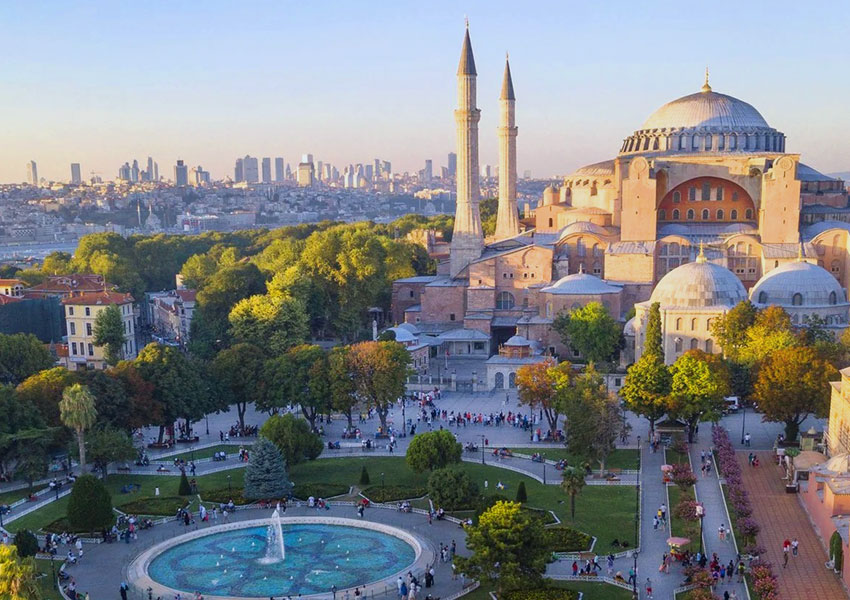
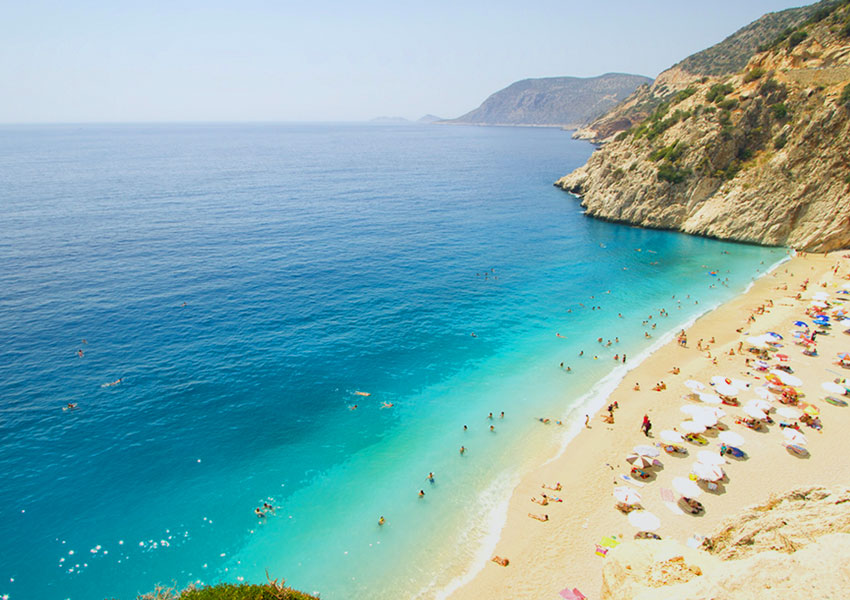

Travel Turkey and engage yourself in a captivating blend of ancient traditions, breathtaking landscapes, and modern marvels. With a history spanning thousands of years, Turkey boasts a rich cultural heritage, which is evident in its magnificent historical sites. From the awe-inspiring Hagia Sophia and the majestic Topkapi Palace in Istanbul to the fascinating cave churches of Cappadocia, Turkey is a living museum that invites you to explore its storied past.
Turkey Travel Guide will lead you to diverse natural landscapes that will leave you spellbound. Turkey offers a feast for the senses, from the stunning beaches of the Aegean and Mediterranean coasts to the snow-capped peaks of the Taurus Mountains. Explore the otherworldly rock formations of Pamukkale, hike through the lush forests of Kazdağı National Park, or set sail on a cruise along the turquoise waters of the Turkish Riviera – the possibilities are endless.
Visit Turkey and tantalize your taste buds with the delectable delights of Turkish cuisine. Savor the distinct flavors of kebabs, meze, and baklava, or indulge in the freshest seafood along the coastal towns. Turkish coffee, with its rich aroma and unique preparation, is a must-try for any visitor.
Beyond its historical and natural wonders, Turkey is also a land of vibrant festivals and celebrations. Witness the colorful spectacle of the Efes Selçuk International Film Festival or experience the spiritual fervor of the Mevlana Rumi Festival in Konya. These events offer a unique opportunity to immerse yourself in the local culture and traditions.
Modern Turkey is a dynamic and cosmopolitan country with bustling cities like Istanbul and Ankara. Explore the world-class museums, trendy neighborhoods, and impressive skyscrapers that define the modern Turkish landscape.
Travel Turkey and discover a country that truly has something for everyone. From ancient ruins to stunning natural landscapes, vibrant festivals to modern marvels, Turkey promises an unforgettable journey.
Traveling to Turkey is like going on a memorable trip to a place where the East and West mix. This country has a lot of beautiful sights and things to do. It mixes old buildings like prominent mosques and old palaces with new tall buildings and fancy shops. You can also find stunning beaches and green mountains in Turkey. Enjoy Turkish baths and tasty food. You’ll get to know a rich and different culture and make unforgettable memories in this beautiful country.
Turkey beckons with an unforgettable blend of history, culture, and natural beauty. Here’s a glimpse of what awaits you:

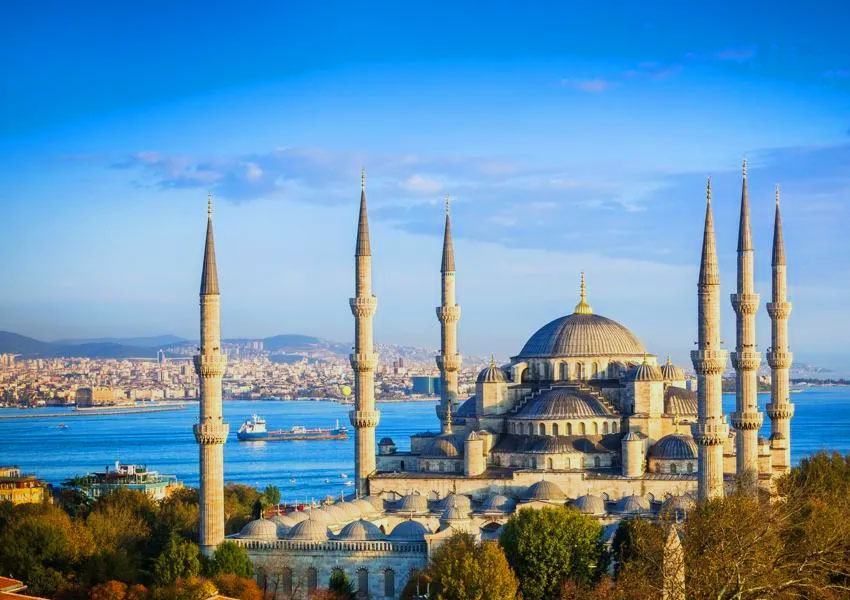
Turkey travel offers a mind-blowing variety of destinations that will capture any traveler’s heart. Istanbul, the jewel of the world, boasts stunning historical buildings like Hagia Sophia and Topkapi Palace. Cappadocia, the land of fairy chimneys, showcases unique rock formations and underground cities, a world of natural wonders. The beautiful Mediterranean and Aegean coasts, with luxurious resorts and relaxing natural beauty, are perfect for rest and rejuvenation. The ancient city of Ephesus, one of the Seven Wonders of the Ancient World, reflects the glory of Greek and Roman times. Pamukkale, with its white travertines called “cotton castles,” creates a breathtaking view.
These top five destinations will whisk you away on an unforgettable journey through Turkey’s history, nature, and beautiful beaches.
If you’re wondering where to visit in Turkey, here are a few incredible options:
Istanbul: The old capital and cultural center, with historical sites, colorful markets, and delicious Turkish food.
Antalya: A beach city on the Mediterranean, a paradise for sun lovers with sandy beaches, water sports, and fancy hotels.
Cappadocia: A region with amazing rock formations, hot air balloon rides, and underground cities that remind us of past civilizations.
Izmir: Turkey’s third-largest city, with a mix of ancient Greek and Roman buildings, beautiful beaches, and modern culture.
Fethiye: A coastal town in southwest Turkey, with a rock tomb called “Tomb of Tombs” and beautiful Aegean beaches, a great place for history and nature lovers.
Follow our ultimate Turkey travel guide and prepare for a fantastic adventure in one of the most beautiful countries in the world.
From the stunning landscapes of Cappadocia to the magnificent Hagia Sophia mosque, each destination offers a blend of natural beauty, culture, and modern wonders. With many attractions, Turkey has something to offer every traveler. Immerse yourself in the vibrant art scene of Istanbul, witness the coastal beauty of the Kaladoug Road, and discover the unique wildlife in the Fethiye region. Explore historical wonders like the ancient city of Ephesus and the pristine beaches of the Aegean Sea.
With its vast landscapes and diverse cities, Turkey promises an adventure like no other. This guide is your key to unlocking Turkey’s diverse and extraordinary tourist attractions, making your trip to Turkey an unforgettable experience.
Cappadocia: Also known as the land of fairy chimneys, Cappadocia is a region with unique rock formations and underground cities. A hot air balloon ride over this region is an unforgettable experience for every traveler.
Grand Bazaar Istanbul: The Grand Bazaar Istanbul is one of the largest and most vibrant covered markets in the world and one of the must-visit attractions when traveling to Turkey. It is home to over 4,000 shops selling a wide variety of goods, including carpets, jewelry, spices, and clothing.
Istanbul: The former capital and vibrant cultural center of Turkey, Istanbul boasts magnificent historical buildings like the Hagia Sophia and Topkapi Palace, majestic mosques, and colorful bazaars.
Troy: The city of Troy was the site of the Trojan War, a famous conflict between the Greeks and Trojans. The war was described in Homer’s epic poem, the Iliad. Today, visitors can see the ruins of the ancient city, including the walls, gates, and temples.
Aegean and Mediterranean Coasts: Turkey has a stunning coastline with turquoise waters. Here you can sunbathe on soft sandy beaches, swim in clear blue waters, and enjoy water sports.
Ephesus: An ancient city that was once one of the Seven Wonders of the Ancient World. Walking among the ruins of this magnificent city takes you on a journey back in time to the Roman Empire.
Blue Mosque: The Blue Mosque is a beautiful mosque in Istanbul that is known for its six minarets and blue tiles. It was built by the Ottoman sultan Ahmed I in the 17th century and is still a functioning mosque today.
Dalyan: Dalyan is a coastal region in southwestern Turkey known for its beautiful beaches, sea turtles, and rock tombs. The region is also home to a number of ancient ruins, including the city of Kaunos.
Gumusluk Cave: Gumusluk Cave is a cave in southwestern Turkey known for its stunning stalactites and stalagmites. The cave is located near the town of Bodrum and is a popular tourist destination.
Topkapi Palace: Topkapi Palace was the main residence of the Ottoman sultans for over 400 years. It is located in Istanbul and is now a museum. The palace complex includes several buildings, including the harem, the treasury, and the gardens.
Fethiye: This coastal town in southwestern Turkey is a paradise for nature and history lovers. In Fethiye, you can visit the rock tomb called “Tomb of Tombs,” walk on the beautiful beaches of the Aegean Sea, and see various wildlife.
Pamukkale: With its white travertines known as “cotton water pools,” Pamukkale creates a spectacular and unique landscape. Walking on these white terraces is an unforgettable experience.
Hagia Sophia: The Hagia Sophia is a magnificent historical building in Istanbul originally built as a church by the Byzantine Empire. It was later converted into a mosque by the Ottoman Empire and is now a museum.
These are just a few of the many attractions that you can find in Turkey. With a rich culture, stunning scenery, and vibrant cities, Turkey is a country that will leave you with unforgettable memories.
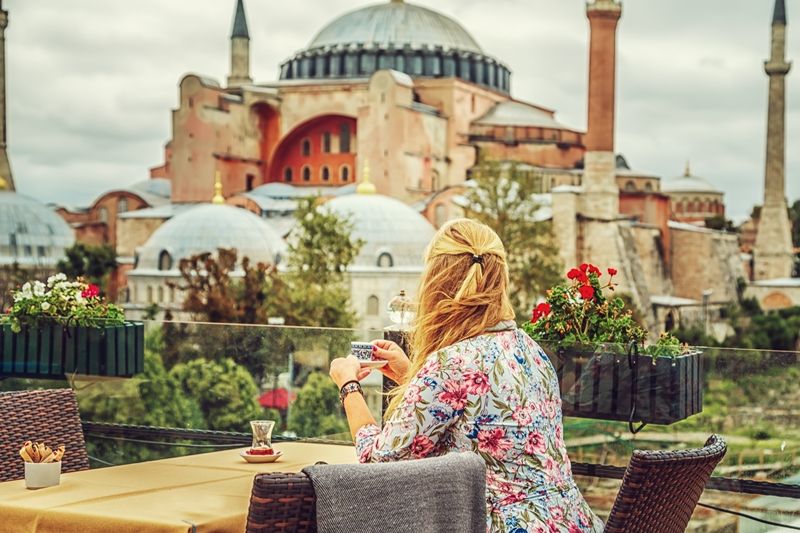
Customize your own holiday! Just tell us what is your need and our experienced travel consultants will suggest you the best trip plan that suits you.
Turkey is a great place for plastic surgery! Many people travel to Turkey for plastic surgery because it’s affordable and has high-quality medical care. When you choose Turkey plastic surgery, you can trust that you’re in good hands with skilled doctors and modern facilities.
Plus, after your surgery, you can enjoy exploring Turkey’s beautiful sights and rich culture. Travel Turkey isn’t just about tourism; it’s also about improving yourself and feeling confident. With its friendly people, delicious food, and stunning landscapes, Turkey makes your journey for plastic surgery feel like a memorable adventure. So, if you’re considering plastic surgery, think about Turkey as your destination. It’s where you can enhance your appearance and experience an unforgettable trip all at once!

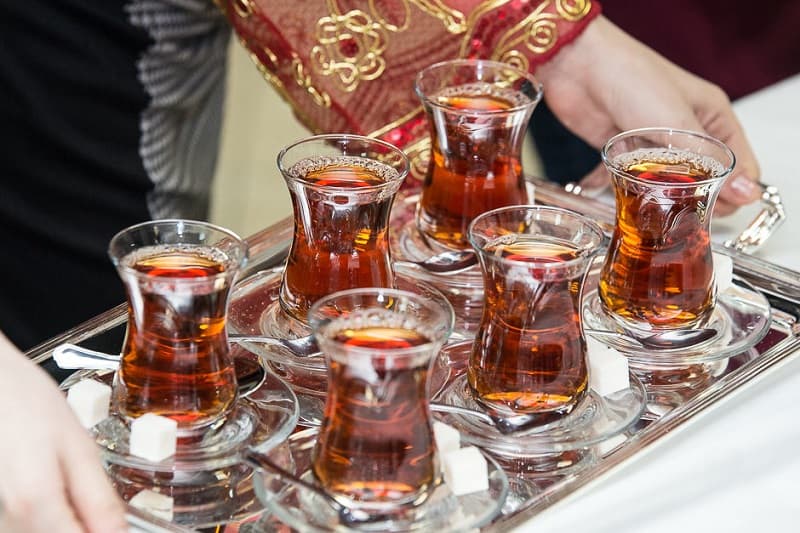
Turkey’s etiquette and customs mirror the nation’s rich cultural heritage and values. Respect towards elders and those in authority is significant, often expressed through polite language and gestures such as slight nods or using honorifics. In Turkish greetings, a handshake is customary, but it’s crucial to let the other person initiate it. Gift-giving is a meaningful act that signifies goodwill, yet items like knives or anything that might suggest separation or sorrow should be avoided. Turkish dining customs emphasize sharing and hospitality; for instance, passing food with your right hand is a sign of respect.
Initially declining a gift is considered polite, yet persistence matters when giving or receiving gifts. Steer clear of sensitive topics such as politics or religion in conversations. It’s also wise to respect personal space, even in crowded settings. Understanding and respecting these customs can significantly enhance your interactions and relationships with the friendly and welcoming Turkish people.
In Turkey, greeting and meeting etiquette is deeply ingrained in the cultural fabric. Handshakes are common when meeting someone, but always wait for the other person to extend their hand first. Using someone’s proper title and last name is a sign of respect. When exchanging business cards, offering and receiving them with both hands is polite, taking a moment to look over the card before putting it away. Conversations should avoid controversial subjects like politics and religion. At social events, respond to toasts warmly and offer them heartily when it’s your turn. Always let the host start the meal before you begin eating. Adhering to these customs demonstrates respect and appreciation for Turkish culture, leading to meaningful connections and mutual respect.
Travel to Turkey and enjoy the enchanting world of Turkish cuisine. Turkish culinary traditions offer a rich and diverse array of flavors, textures, and regional specialties. With its roots deeply entrenched in history, Turkish cuisine reflects the influence of various civilizations and the rich geographical landscapes of Turkey. From the robust and spicy dishes of the Southeast to the olive oil-laced recipes of the Aegean coast, each region presents a distinct taste contributing to the national palette.
Turkish kebabs, baklava, and Turkish delight are iconic dishes recognized worldwide. In Turkey, bread forms a staple part of every meal, and numerous types of bread are baked across the country. Rice is also fundamental, often prepared with spices and nuts to create pilafs, a mainstay in Turkish homes.
Food and cooking have a significant position in Turkish culture, celebrated at family gatherings and in festive events. The philosophy of “balance in food” is evident, focusing on the harmony of flavors, colors, and health benefits. Turkish culinary arts are renowned for their attention to detail regarding texture, aroma, and presentation, making each meal a feast for the senses.
Turkish tea and coffee culture is also prominent, featuring an array of flavors that are integral to Turkish social life. Tea gardens and coffee houses serve as popular meeting spots for socializing and relaxation.
Turkish culinary practices are admired globally for their rich flavors, sophisticated techniques, and cultural significance. With a history spanning centuries, Turkish cuisine showcases various regional dishes that reflect its cultural richness.
Doner Kebab: A popular street food, doner kebab is made of meat cooked on a vertical rotisserie, typically served wrapped in bread with vegetables and sauce.
Simit: Turkish bagels are sesame-crusted bread rings, perfect for breakfast or as a snack.
Meze: Small dishes served with drinks, meze often includes a variety of cold and hot appetizers like hummus, stuffed grape leaves, and eggplant salad.
Baklava: A famous dessert, baklava is made with layers of filo pastry, filled with nuts and sweetened with syrup or honey.
You must taste these foods when you travel to Turkey. Each dish invites food lovers to explore the rich Turkish culinary landscape and enjoy a memorable journey through the tastes of Turkey.
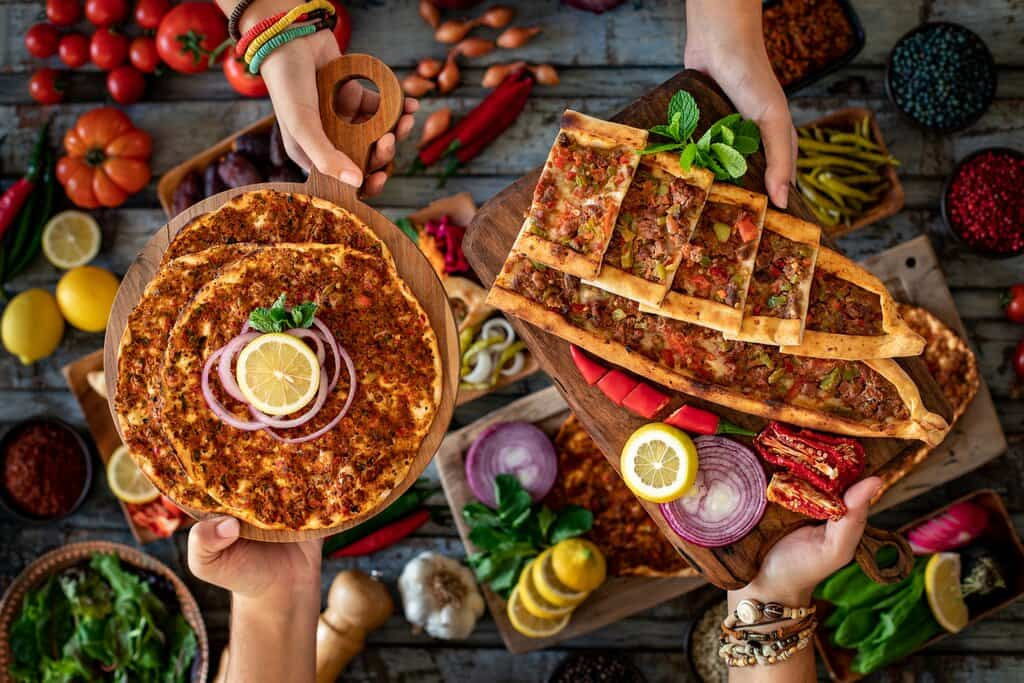
Savor a symphony of flavors that define culinary artistry.
Turkish cuisine entices with a burst of flavors from fresh ingredients, grilled delights, and hearty stews.

Turkey’s currency is the Turkish Lira (TRY), often called “Turkish Money.” The main unit of Turkish Lira is called the Lira, and it’s symbolized by ₺. The Central Bank of the Republic of Turkey issues the currency. Available denominations include banknotes for 5, 10, 20, 50, 100, and 200 Lira, and coins for smaller values called Kuruş. Although cash remains popular for daily use, Turkey is advancing in digital payments with options like BKM Express and other mobile payment systems, leading to the transition to digital transactions.
When planning your travel to Turkey, it’s often better to carry USD (United States Dollar) rather than Euro. Although some vendors and services in Turkey might accept Euros, the USD is generally more recognized and easier to exchange at local banks and currency exchange spots.
USD Cash: It’s practical to bring some USD in cash, ideally in smaller bills. This makes it easier to pay for things directly and to change money. Major airports, hotels, and banks in Turkey offer facilities to exchange USD into Turkish Lira (TRY).
ATM Withdrawals: You can use international debit or credit cards to get Turkish Lira directly from ATMs across Turkey. Both Visa and MasterCard are widely accepted. Make sure to notify your bank about your travel plans to prevent any card issues.
Currency Exchange: For better exchange rates, convert your USD to Turkish Lira at local banks or authorized exchange offices instead of airports or hotels.
Traveler’s Cheques: These are not as common anymore and might be hard to use in Turkey. Carrying cash or using cards is more convenient.
Inform Your Bank: Before your trip, tell your bank where and when you’ll be traveling. This helps avoid your cards being frozen for suspected fraud.
Safety Tip: Always keep your money secure and stay alert for pickpockets, especially in busy areas. Having a variety of payment methods, like cash and cards, will ensure you’re prepared for different situations during your Turkey travel guide experience.
Turkey’s dress code is shaped by its deep history, varied culture, and societal norms. Traditional Turkish attire includes the elegant Kaftan for women and the comfortable Shalwar for men. These clothes often display detailed embroidery and bright colors, showcasing the country’s artistic legacy. Western outfits are common in city areas in modern times, but modest dress is still valued for formal occasions and sacred places.
When planning a trip to Turkey, choose cozy outfits that respect local traditions. It’s advisable to wear modest clothing, particularly when visiting mosques or rural settings. Bring various layers to suit different weather conditions and comfortable shoes for walking. A general expectation exists to avoid clothes that are too revealing. Moreover, some workplaces might have their own dress codes.
Adapting to local customs while maintaining your personal style will help ensure a smooth and respectful journey in Turkey. Generally, Turkey’s dress code combines traditional elements with modern fashion, displaying the nation’s distinct flair.
Male Attire – Shalwar:
The Shalwar, a traditional male outfit, is noted for its straightforward elegance. It features straight lines and often includes a round neckline, reflecting the cultural values of modesty and balance. Historically, its simple colors indicated social status. Now, the Shalwar’s blend of old and new mirrors Turkey’s historical progression.
Female Attire – Kaftan:
The Kaftan, emblematic of women’s elegance, honors the female shape while promoting modesty. Its loose fit and flowing fabric align with cultural values of humility and decorum. The evolution of this dress shows Turkey’s cultural changes, from the Ottoman era’s ornate patterns to today’s simpler, stylish designs.
Both outfits represent Turkey’s principle of equilibrium, honoring both history and progress. They resonate with ideals of harmony, modesty, and reverence for heritage. As Turkey moves towards modernity, these traditional clothes remain significant symbols of its cultural heritage.


Turkey’s language, Turkish, is a key part of the country’s culture and identity. Turkish is the official language, spoken by most of the population, and it originates from the distinct dialects of the region. Unlike languages that use an alphabet like English, Turkish uses a Latin-based script introduced in the 1920s by Mustafa Kemal Atatürk to modernize and simplify Turkish writing.
The Turkish writing system consists of 29 letters, some with special characters unique to the Turkish language. This structure, while straightforward compared to character-based languages, offers learners a clear window into Turkish culture and history. Additionally, Turkish includes a phonetic system that helps learners pronounce words as they are written, aiding in easier communication and study.
With millions of speakers worldwide, learning Turkish and understanding the Turkish writing system can greatly enhance opportunities for cultural exchange, business, and a richer appreciation of Turkey’s dynamic history and contributions to civilization.
Hello: Merhaba
Thank you: Teşekkür ederim
Yes: Evet
No: Hayır
Please: Lütfen
Excuse me: Affedersiniz
Sorry: Özür dilerim
Goodbye: Hoşça kal
How much is this?: Bu ne kadar?
Where is…?: … nerede?
I don’t understand: Anlamıyorum
Help!: İmdat!
My name is…: Adım…
Where can I find a taxi?: Nereden taksi bulabilirim?
I need a doctor: Doktora ihtiyacım var
I’m lost: Kayboldum
Can you speak English?: İngilizce konuşuyor musunuz?
What is this?: Bu nedir?
Where is the bathroom?: Tuvalet nerede?
Delicious!: Lezzetli!
These Turkish phrases for travel are essential for navigating and communicating during your adventures in Turkey, making your experience more enjoyable and connecting you more deeply with local people.
Emergency Numbers You May Need on Your Trip to Turkey
When you travel to Turkey, it’s essential to know the emergency numbers to help you if needed. Remember, these emergency numbers are usually in Turkish. If you don’t speak Turkish, having a translation app or a local friend who can help you during emergencies is a good idea.
Emergency
112 – Ambulance & Medical Emergency: Call this number if you need an ambulance or medical assistance because of an accident or health emergency.
118 – Directory Inquiries
110 – Fire Brigade
155 – Police: You can dial 112 from a mobile phone to reach the local police too.
110 – Fire & Rescue: Use this number to report fires or get help in fire-related emergencies.
International Airports in Turkey
Istanbul Atatürk Airport: +90 212 463 3000
Ankara Esenboğa Airport: +90 312 590 4000
Izmir Adnan Menderes Airport: +90 232 455 0000
Turkey Travel Guide
Knowing these emergency contacts can make your travel to Turkey safer and more secure. Always keep these numbers handy, and enjoy your trip knowing you’re prepared for any situation.
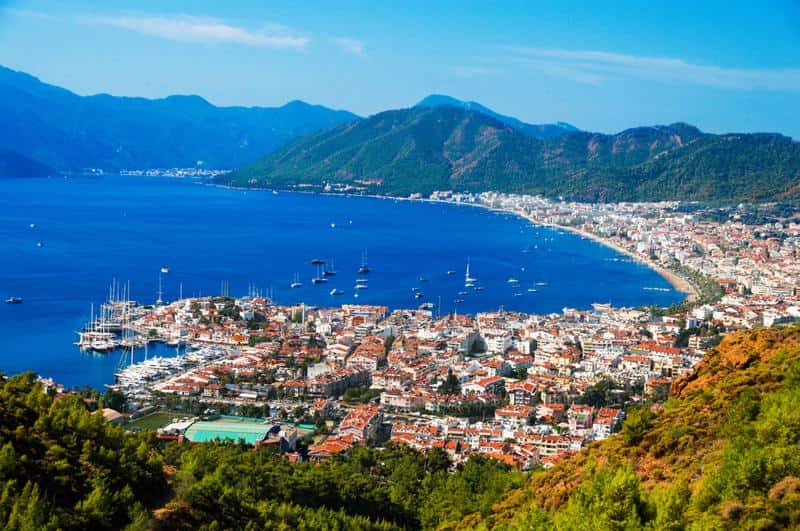
Turkey is usually a safe place to go, but like any place, it’s important to be careful and keep up with what’s happening locally. Turkey is usually a safe place to go, but like any place, it’s important to be careful and keep up with what’s happening locally.
April, May, September, and October are nicely warm, with temperatures between 20°C and 30°C, making them great times to explore Turkey’s wonderful collection of ancient sites. The summer months (June to September) are really hot, with temperatures going up to the mid-thirties on the south coast.
If you want a laid-back, all-inclusive trip, choosing a package tour is best. But if you like nonstandard adventures, traveling on your own is perfect. Turkey has lovely weather, friendly locals, beautiful nature, and deep history—and those are just some of the great things about the country!
Turkish is the main language for 90 percent of the people in Turkey. Around 70 other languages and dialects are spoken too, like different types of Caucasian and Kurdish, as well as Arabic, Greek, Ladino, and Armenian.
Don’t miss trying famous traditional Turkish foods like: Baklava. Cig Borek. Gozleme. Guvec. Imam Bayaldi. Manti. Menemen. Pide. and various regional cuisines.
Send your question to us and our Australian travel experts will answer you ASP.
Travel Turkey and discover a captivating country that boasts magnificent landscapes, enchanting beaches, bustling cities, and rich history. Wander through the bustling bazaars, sail along the turquoise coasts, and see famous sites like the Hagia Sophia. Turkey Travel offers a variety of activities that make it an essential destination for tourists worldwide. Visit Turkey to experience its unique blend of culture and natural beauty that promises unforgettable adventures.
Subscribe to see secret deals prices drop the moment you sign up!